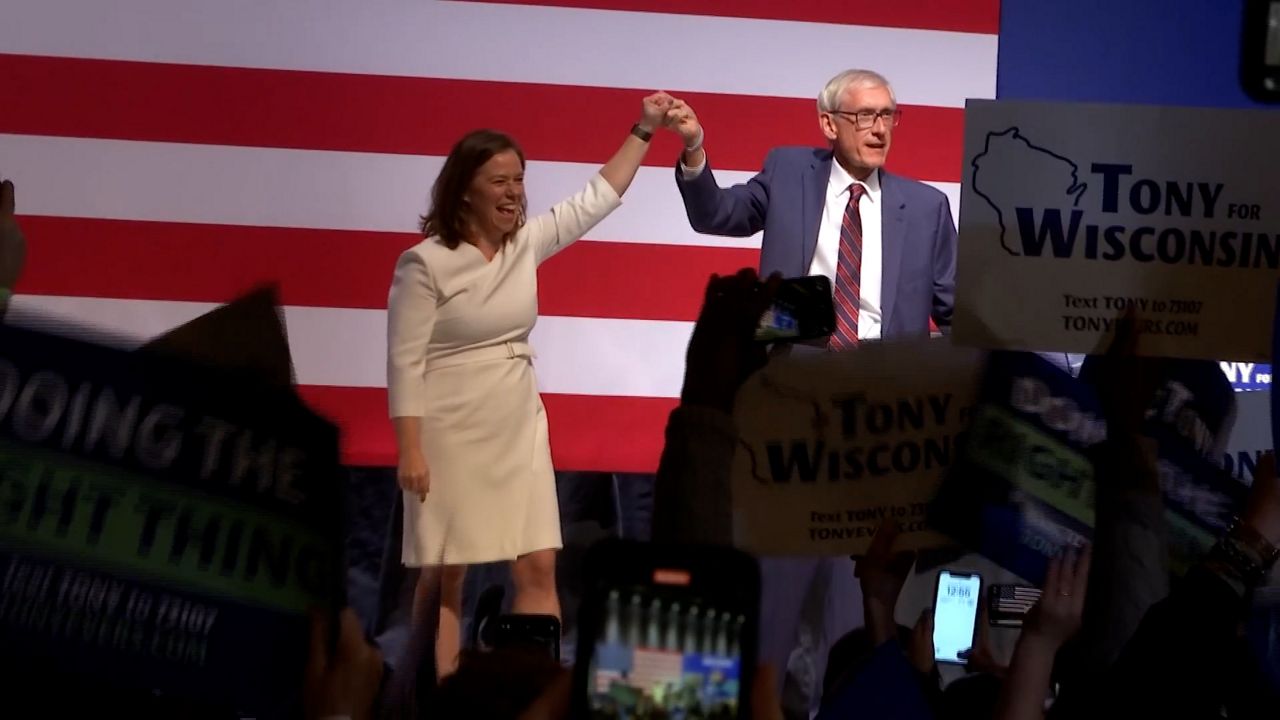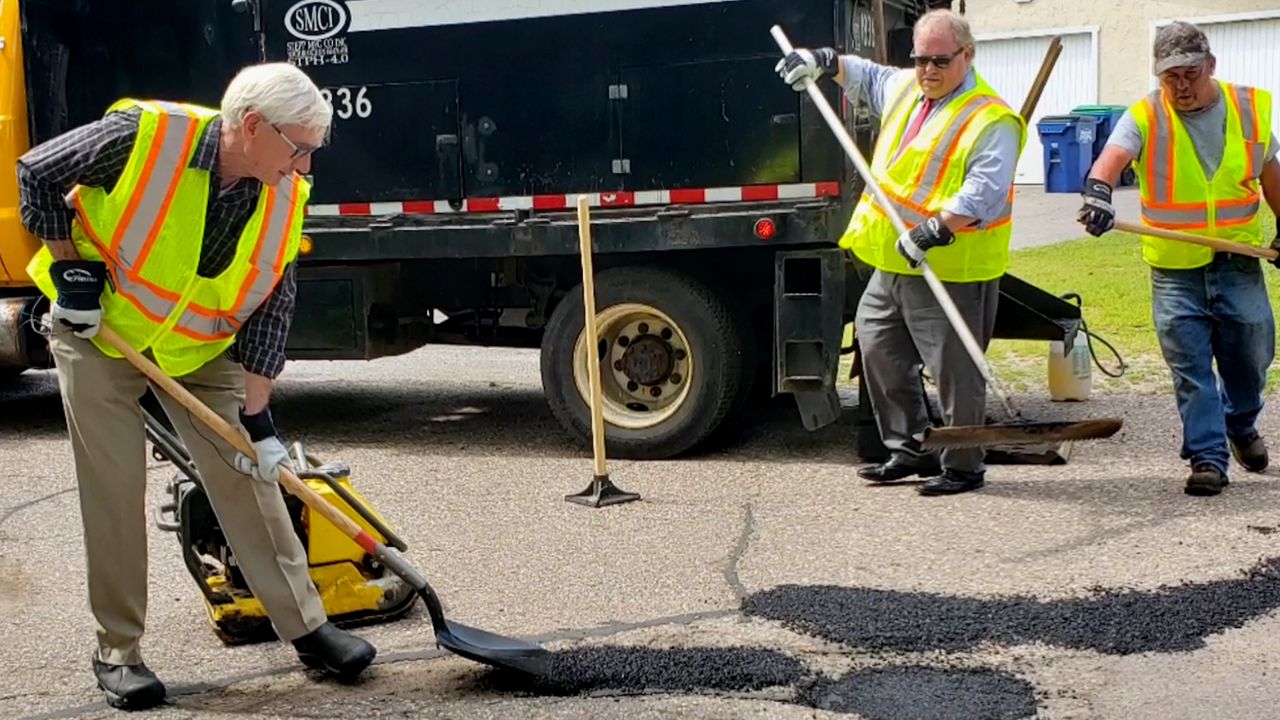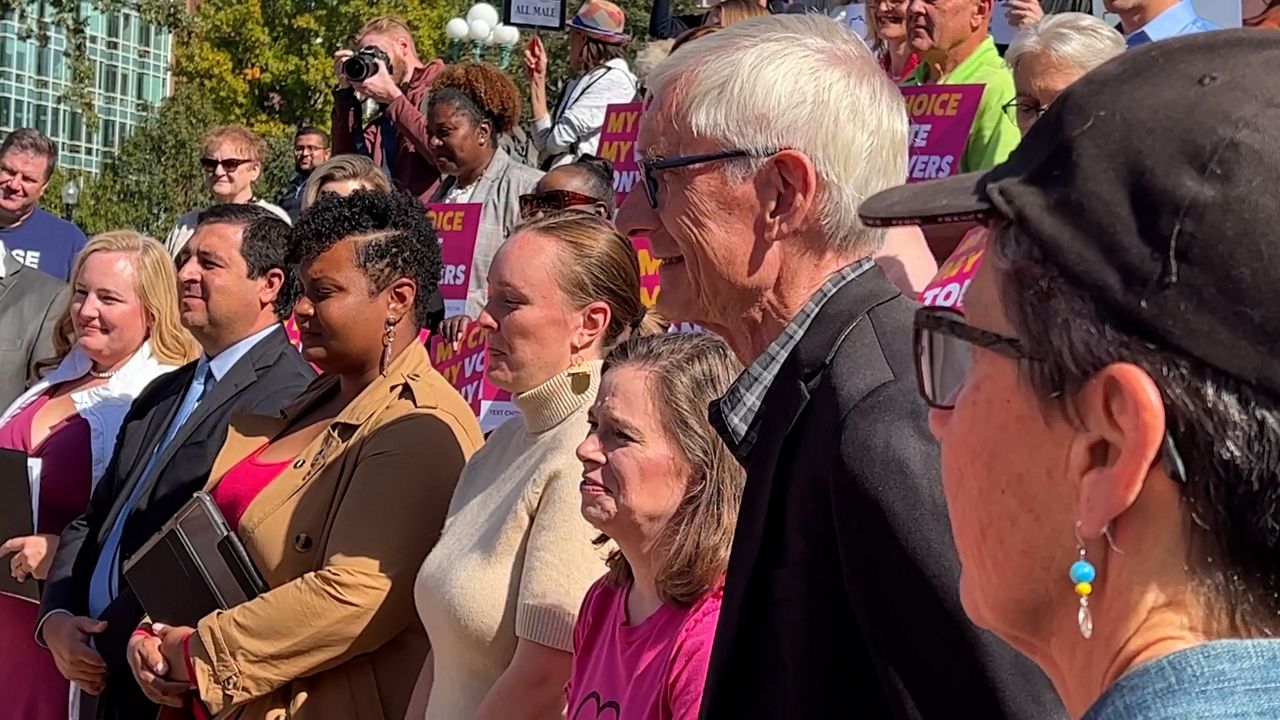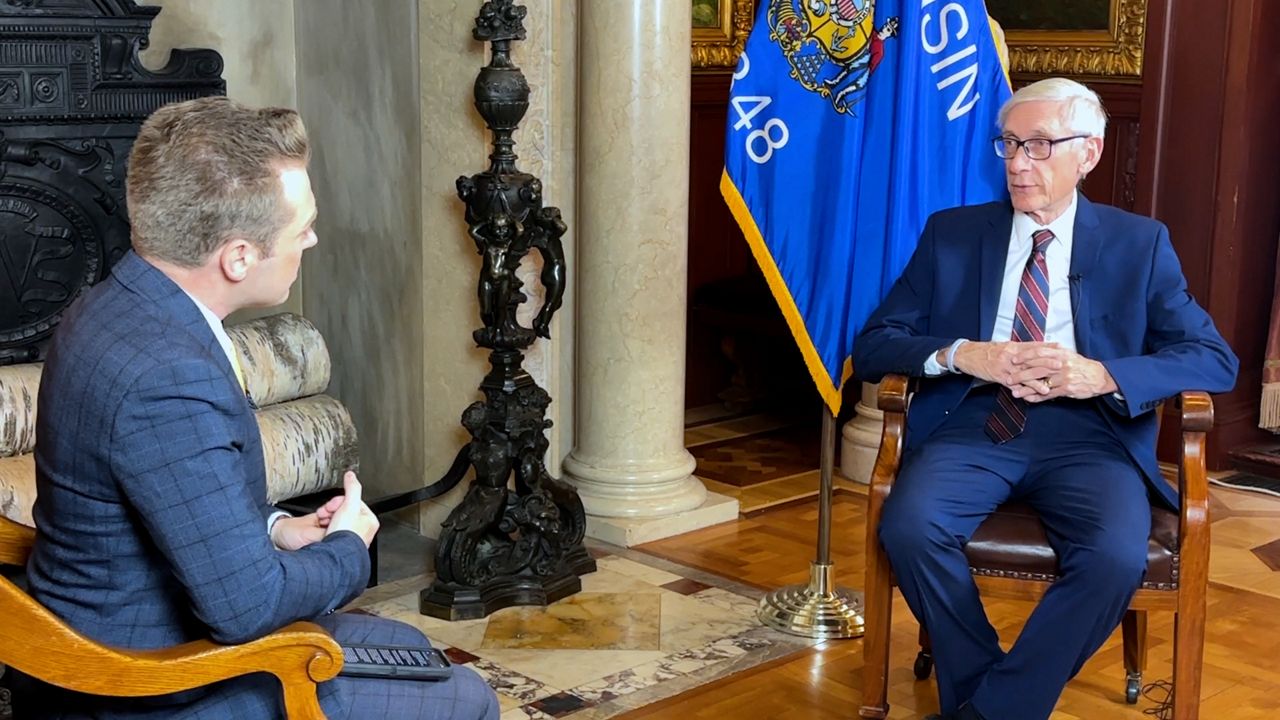MADISON, Wis. — As Gov. Tony Evers gets ready to begin his second term in January, compromise with Republican leaders who control the legislature will continue to be crucial.
Spectrum News 1 Political Reporter Anthony DaBruzzi sat down with the governor ahead of Inauguration Day for a conversation about what Tony Evers hopes to accomplish in the next four years.
You can watch the full interview above.
When Gov. Evers officially begins his second term in January, he will have a new lieutenant governor by his side. Current Lt. Gov. Mandela Barnes decided against seeking reelection and instead made a failed bid for U.S. Senate against incumbent Ron Johnson.
Sara Rodriguez, a representative in the state Assembly, won the August primary to become Evers' running mate in the fall General Election.
“Sarah Rodriguez has different interests than the present lieutenant governor,” Gov. Evers explained. “The present lieutenant governor was focusing on climate change and so on, and her background is healthcare, and so I think that will be different.”

Another difference big could be the amount of compromise between Democrats and Republicans, according to Gov. Evers. He believes there will be less “battling” with Republicans who control the legislature.
“I would say shared revenue is something that we have a shared concern about, and so I think there we will, because of the campaign, frankly, and how that played out, we will have some things that we agree on and a lot of things we won't, so a lot of them the same, but I think there will be, hopefully, less angst.”
As Gov. Evers prepares to make his third budget proposal to lawmakers, this pitch will be different than previous ones. Wisconsin has a projected $6.6 billion surplus, which has spurred competing ideas about how to allocate the historical level of funds.
“We have to do more for our schools,” Gov. Evers said. “Obviously, our schools, K-12 schools, went on many referenda over the last election, so I anticipate that there will be a need for more money for our schools.”
Gov. Evers also believes there will be Republican support for shared revenue to help ensure cities and counties across the state have enough funding to support critical services such as public safety.

“They have been starved, frankly, for the last 12 years, and so I look forward to getting some [funding], and when I talk to Republicans and hear them talk when they talk to the media, they seem to be on the same page,” Gov. Evers said.
Gov. Evers has a longstanding record of pushing for marijuana reform in his budget proposals to lawmakers and has argued cannabis could be a tool to boost tax revenue. However, all such efforts failed to clear hurdles in the Republican-controlled legislature and were stripped from the budgets for being non-fiscal policies.
In 2019, Gov. Evers called for legalizing medicinal marijuana and the decriminalization of small amounts. A push for full legalization was made in the governor's 2021 budget proposal. Only time will tell what his 2023 plan will bring, but Evers has already made clear legalization will be a part of the plan.
“We have to do something, in my opinion,” Gov. Evers explained. “Now, whether we are able to pull that off, I don't know. There seems to be an interest in, and there has been in the past, some Republicans I know voiced around the issue of medical marijuana. We will likely in our budget, talk about the legalization of recreational and also medicinal marijuana, so we hopefully will get someplace, but I just sense in the tea leaves that there is an interest in a two-step process here, as other states have done medicinal first recreational second, but we will see. We will be pushing for all. There is no question about that.”
Earlier this year, Gov. Evers authorized a lawsuit to block the state's abortion ban from 1849. Since the election, some Republicans have expressed an openness to exceptions for rape and incest. However, Evers said finding common ground on the issue probably won't happen.

“That is hardly a compromise, so I guess the answer is that is off the table because it leaves the 1849 law that bans all abortions except for rape and incest if that is what they want to change,” Gov. Evers explained. “It also flies in the face of the lawsuit that we have, that the attorney general I have filed. We don't want to mess with that lawsuit. We think we are going to win that, but at the end of the day, leaving the 1849 law that had no input by women in place, that is a non-starter.”
In Wisconsin, presidential elections have been decided by as much as a half percent, but gubernatorial races can be close too. Evers beat former Gov. Scott Walker by roughly a percentage point in 2018. In November, the governor fended off Republican challenger Tim Michels by almost three times the margin. Though Evers joked his victory by nearly 3.5% is a landslide in the Badger State, he understands what it means to be a leader under a divided government.

“It's a small number. We are a purple state,” Gov. Evers said. “We have to work with Republicans to make sure that they get things done. The thing about the last election, I believe, is that people were supportive of me and what we have been able to do. But at the end of the day, we have to continue to prove to people that the things that we care about [are] exactly what the people of Wisconsin care about. You know, pretty basic things, whether it is health care, whether it is good public schools, infrastructure, making sure that we have a good health care system. All those things we are going to continue to fight for, and there is going to be disagreement at the level of funding for those and how they all play out. That is democracy, and I look forward to another four years of participating in it.”



